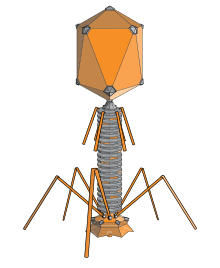Phages were discovered to be antibacterial agents and were used in Georgia and the United States during the 1920s and 1930s for treating bacterial infections. They had widespread use, including treatment of soldiers in the Red Army. However, they were abandoned for general use in the West for several reasons:
- Medical trials were carried out, but a basic lack of understanding of phages made these invalid.
- Phage therapy was seen as untrustworthy, because many of the trials were conducted on totally unrelated diseases such as allergies and viral infections.
- Antibiotics were discovered and marketed widely. They were easier to make, store and to prescribe.
- Former Soviet research continued, but publications were mainly in Russian or Georgian languages, and were unavailable internationally for many years.
- Clinical trials evaluating the antibacterial efficacy of bacteriophage preparations were conducted without proper controls and were methodologically incomplete preventing the formulation of important conclusions
Their use has continued since the end of the Cold War in Georgia and elsewhere in Central and Eastern Europe. Globalyz Biotech is an international joint venture that commercializes bacteriophage treatment and its various applications across the globe. The company has successfully used bacteriophages in administering Phage therapy to patients suffering from bacterial infections, including: Staphylococcus (including MRSA), Streptococcus, Pseudomonas, Salmonella, skin and soft tissue, gastrointestinal, respiratory, and orthopedic infections. In 1923, the Eliava Institute was opened in Tbilisi, Georgia, to research this new science and put it into practice.


